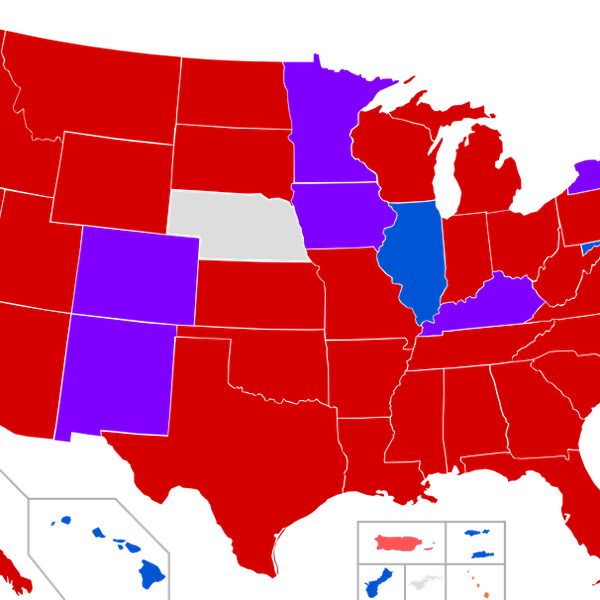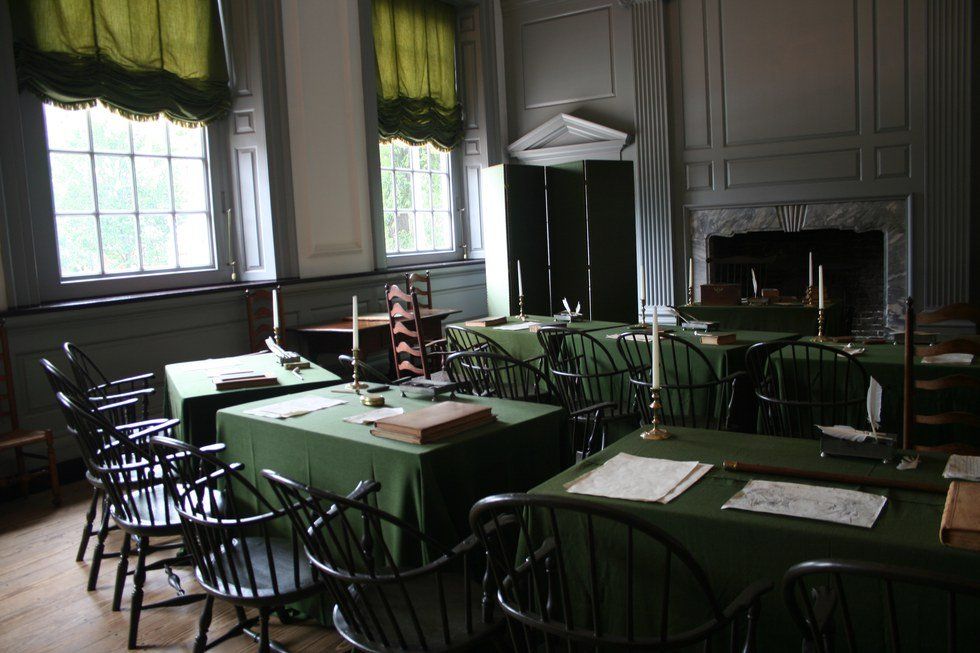As we near the presidential election, it is a common belief that all voices are equal. Despite questions being raised over the fairness of super delegates and campaign financing, we rarely stop to talk about the inequity involved with the electoral college. Quite famously, in the 2000 election George W. Bush beat Al Gore despite receiving fewer votes. Even in less infamous elections, not all voices are weighted equally. For the lucky residents of Wyoming, a vote cast has the power of four votes in Texas. More importantly, the current voting system technically would allow someone who won 75% of the vote to not become president.
The electoral college is composed of 538 electors. To win, a candidate must win 270 of these electors. Electors represent the 50 states in addition to Washington D.C. At its genesis, the electoral college served a much more practical purpose. It was difficult to not only collect all votes, but it was even harder to count them all. The Electoral College simplified all of this. This seems like a great solution to a problem in the early years of the nation, but even in a very technologically advanced country, we still cling on to the electoral college.
The first problem arises when some voters have a larger voice than others. Each state receives a minimum of three electoral votes. In states that should only receive a vote or two if electors were assigned by a simple proportion votes by these citizens are amplified. In order to give small states more votes than their population should allow, larger states do not receive as many votes as they should. Wyoming, which has the smallest population of all the states, shows the largest contrast. One voter in this state has the voting power of three Californians or four Texans.
Once a vote is cast, one would assume the electors in your state have to vote for the winner in their state. That would be incorrect. In fact, in 24 of the 51 voting states, there is not a legal requirement to adhere to the results of the state an elector represents. Although this change in voting hasn't swung an election, that possibility still exists. In the history of the United States, a switching of support has happened a total of 87 times. That seems a bit high for a country less than 250 years old.
The system we have in place has also created the phenomenon of swing states. Unless you live in one of the few states where support is pretty close to even, winning your vote isn't of the utmost importance. If you are in the minority in your state, your vote has almost no meaning. We have certain views of the political leanings of states, but they tend to be rather inaccurate views of how votes actually were cast. Texas is seen as a largely Republican state, one which politicians either feel is a long shot or a sure thing. Yet, if we didn't have winner take all 16 of the state's electors would have gone to Obama in 2012. In the same year, the extremely blue state of California would have given 22 electors to Romney. Politicians instead can pander to a select few states and don't have to give solutions that help the country as a whole.
Perhaps the most alarming part of the electoral college is the fact that someone with only 22 percent support could be president, no cheating involved. CPG Grey made a great video on the topic, which I highly recommend watching. To win all the electors of a state you only need to secure 50 percent plus one vote. By focusing on winning in states which have disproportionately small populations compared to the electoral votes they are allocated, you can meet the requisite number of electors to win, though only racking up 22 percent of the popular vote. Starting with Wyoming, and working with states with a similar imbalance of voter power soon a candidate who has 75 percent support could be giving a concession speech. The chances of this happening may not be high, but should this even be possible.
In the 21st century the need for the electoral college is fading fast. It is full of problems and loopholes. Even in the manifestation of our freedom and supposed equality, it has been made clear that not all votes have the same power.





















